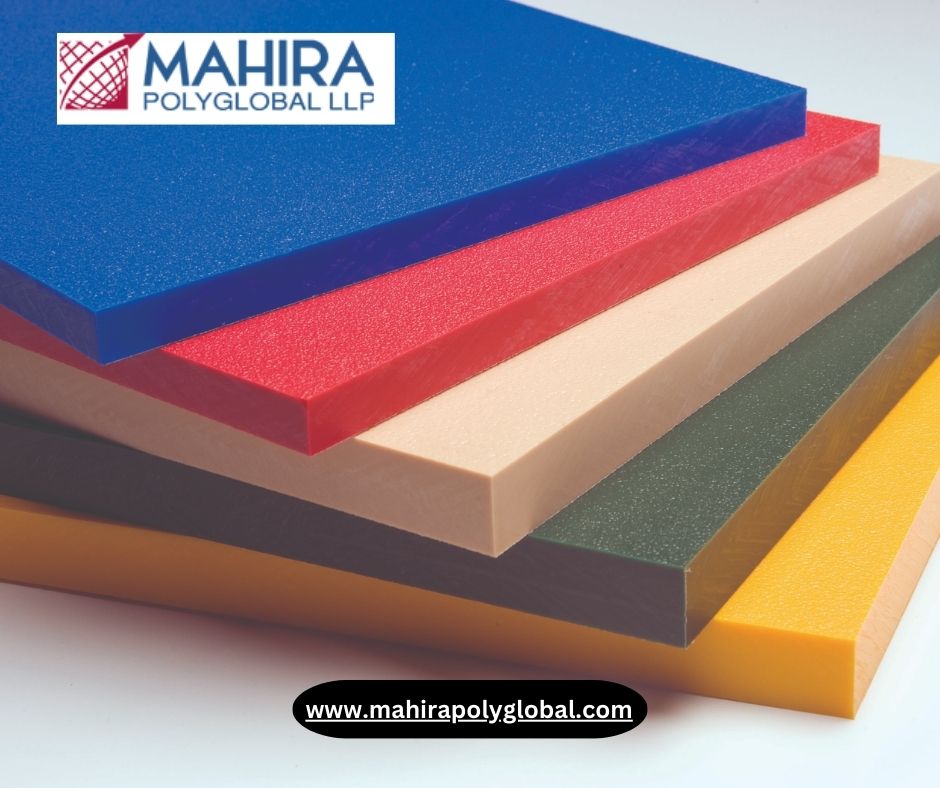High-Density Polyethylene (HDPE) sheets have become a staple across industries due to their excellent properties, versatility, and cost-effectiveness. These lightweight yet durable sheets offer solutions for a wide range of applications, from industrial to residential use. Whether you’re seeking a Sheet of HDPE for heavy-duty projects or exploring high-density plastic sheets for everyday needs, HDPE stands out as a reliable material that combines strength, flexibility, and sustainability.
What Are HDPE Sheets?
HDPE sheets are made from a thermoplastic polymer called high-density polyethylene. This material is known for its high strength-to-density ratio, making it lightweight yet exceptionally strong. HDPE sheets are often used as an alternative to traditional materials like wood, metal, or glass, as they offer similar functionality with added benefits like moisture resistance and easy handling.
Key Properties of HDPE Sheets
1. High Strength and Durability
HDPE sheets are strong enough to handle a lot of weight and pressure. They resist cracking, denting, and chipping, even in demanding conditions.
2. Lightweight Nature
Despite their strength, HDPE sheets are lightweight, making them easy to transport, handle, and install.
3. Chemical and Moisture Resistance
HDPE sheets are impermeable to water and resistant to a wide range of chemicals, making them suitable for applications in harsh environments.
4. UV Resistance
For outdoor use, UV-resistant HDPE sheets ensure long-lasting performance by preventing degradation from sunlight exposure.
5. Recyclability
As an environmentally friendly material, HDPE sheets are 100% recyclable, reducing waste and contributing to sustainability.
Applications of HDPE Sheets
1. Construction Industry
In construction, High-density polyethylene sheets are used for barriers, geomembranes, and formwork. Their durability and resistance to chemicals make them ideal for heavy-duty projects.
2. Agriculture and Aquaculture
HDPE sheets are widely used in agricultural and aquaculture settings for tasks like lining ponds, constructing silos, and creating irrigation systems. Their resistance to water and chemicals ensures reliable performance.
3. Packaging and Storage
Lightweight and durable, HDPE sheets are used to create storage containers, pallets, and packaging solutions. Their ability to withstand heavy loads and environmental conditions makes them a preferred choice in this industry.
4. Automotive Sector
In the automotive industry, HDPE sheets are used for fuel tanks, bumpers, and interior panels. Their lightweight nature contributes to improved fuel efficiency.
5. Signage and Advertising
HDPE sheets are often used for outdoor signs and advertising boards. Their smooth surface ensures excellent printability, while their UV resistance keeps the signs intact for longer.
Benefits of Using HDPE Sheets
1. Versatility
Whether for industrial, commercial, or residential purposes, HDPE sheets can be tailored to meet diverse needs.
2. Longevity
With high resistance to wear and tear, HDPE sheets offer a longer lifespan compared to many alternative materials.
3. Easy Customization
A sheet of HDPE can be easily cut, molded, or welded into various shapes and sizes, allowing for flexible design and application.
4. Cost Efficiency
HDPE sheets are an economical choice, providing superior performance without the high costs associated with materials like metal or wood.
5. Environmental Benefits
Being recyclable, HDPE sheets reduce environmental impact, making them an excellent choice for eco-conscious industries.
How to Choose the Right HDPE Sheet
1. Understand Your Application
Determine the purpose of the HDPE sheet. For outdoor use, opt for UV-stabilized sheets. For industrial applications, choose thicker, higher-grade sheets.
2. Compare Thickness and Density
High-density plastic sheets come in various thicknesses and densities. Select the one that best fits your needs, balancing weight and strength.
3. Check Supplier Credentials
Always source your high-density polyethylene sheet from reputable suppliers to ensure quality and consistency.
4. Evaluate Cost and Value
While affordability is important, focus on long-term durability and performance. Compare prices without compromising on quality.
5. Request Customization Options
Some suppliers offer customization, such as pre-cut sheets, specific colors, or special coatings, to meet your unique requirements.
Maintenance Tips for HDPE Sheets
- Regular Cleaning: Wipe the sheets with a soft cloth and mild detergent to remove dirt and grime.
- Avoid Harsh Chemicals: Use chemical-free cleaners to maintain the sheet’s integrity.
- Proper Storage: Store HDPE sheets in a flat position in a cool, dry area to prevent warping.
- Inspect Periodically: Check for signs of wear, such as cracks or discoloration, especially in high-stress environments.
Conclusion
HDPE sheets are a reliable, versatile, and eco-friendly solution for various industrial, commercial, and residential applications. Whether you’re looking for a sheet of HDPE for construction or High-density plastic sheets for packaging, this material provides unmatched durability and flexibility. By understanding your specific needs and selecting the right supplier, you can leverage the benefits of HDPE sheets for your projects.
Invest in high-density polyethylene sheets today to ensure long-lasting, cost-effective, and sustainable solutions for your applications.
Frequently Asked Questions (FAQs)
1. Which applications are common for HDPE sheets?
Construction, agriculture, packaging, the automobile industry, and signs are just a few of the industries that employ HDPE sheets. Their versatility, durability, and resistance to chemicals make them suitable for a wide range of applications.
2. How do I determine the cost of a high-density polyethylene sheet?
The cost depends on factors like thickness, size, and grade. Always compare prices across suppliers and consider shipping and customization costs for an accurate estimate.
3. Are HDPE sheets environmentally friendly?
Yes, HDPE sheets are 100% recyclable and contribute to reducing plastic waste. Many industries prefer HDPE for its eco-friendly properties, making it a sustainable choice.
